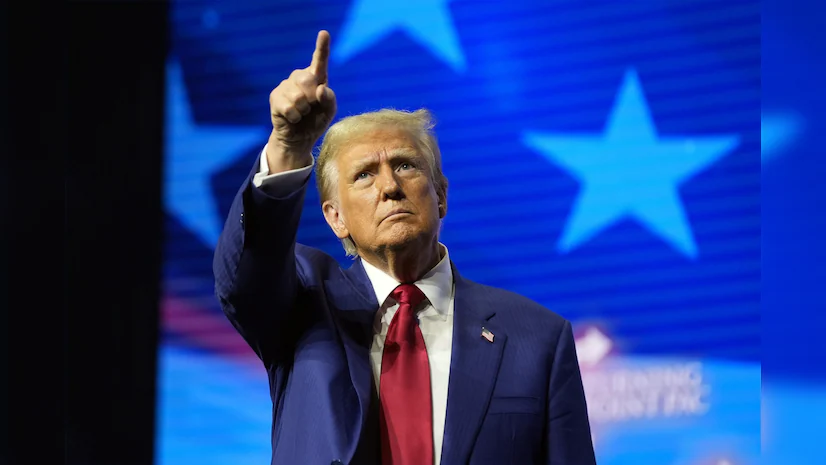

There are two headlines about Treasurer Jim Chalmers’ take on the impact of President Donald Trump. One says that an economic “Trump slump” is on the cards. The other says that “Chalmers moves to calm Australian markets over Donald Trump.”
A more astute view comes from economist Chris Richardson who told the AFR that it was difficult to model the impact of Trump policies until the actual details of what he’d do were known. Richardson did caution that the impact may be underestimated.
“We’re not quite certain what he will do and uncertainty in an economy comes at a cost. It’s an uncertainty premium,” he said.
The biggest concern has to be the impact of his proposed tariffs — 60% on China and 10/20% on the rest of the world!
Looking at the catastrophic scenario, Shane Oliver said Australia’s $2.5 trillion economy would be worse off. “Assuming Trump goes all the way with tariffs, then you could be looking at, in the first year or so, a 0.5% hit to economic activity here,” AMP’s chief economist said.
Given we’re growing very slowly because of 13 interest rate rises, a 0.5% hit could tip us into recession. On the flipside, the view is that China is stimulating its economy but two days ago, a Reuters headline told us that “China’s latest stimulus falls short of expectations”.
This adds to our concerns about our economy next year, which really should be rebounding driven by interest rate cuts that should start in February. However, along comes Donald Trump with his tariff threats and Treasurer Chalmers agrees with Shane Oliver that if these Trump trade taxes are imposed, we will grow slower. That said, in an upcoming speech to be delivered today, Dr Chalmers will say: “Treasury’s analysis demonstrated that we should expect a small reduction in our output and additional price pressures, particularly in the short term”.
And it’s the price pressures from tariffs that could be a problem for us.
ANZ’s CEO Shayne Elliot told the AFR’s Andrew Tillett that Trump’s inflationary policies could mean any cut to Australian interest rates wouldn’t come until later next year and would be less frequent than previously expected.
That would be bad for home loan borrowers praying for a rate cut, businesses hoping to see customers with money in their pockets to spend and the Albanese Government, which is losing popularity with an election to win likely in May.
While the AFR was more focussed on Chalmers’ perceived threat of Trump (albeit in a measured way), The Australian’s Simon Benson was less concerned writing “Jim Chalmers has moved to reassure domestic markets an isolationist US policy agenda under Donald Trump would have a minimal immediate impact on the Australian economy…”
And that’s despite fears that the new US President will ask us to bump up defence spending by $25 billion a year! Benson reports that Mike Pezzullo, the former Department of Home Affairs secretary under Donald Trump, has warned us about Australia’s “parlous” defence capability gap, which would be a significant liability with the Trump administration.
But all this is speculation. You have to remember that the new President doesn’t take office until January 20. While President Trump can be unpredictable, it’s likely he’ll use his big election win to start ‘horse trading’ with Europe and China, with tariffs to be his big bargaining tool.
I’m staggered how those analysts concerned about Trump’s tariffs are tipping that high inflation is inevitable. US voters opted for Trump because of cost-of-living concerns, so how could Trump impose tariffs on imports and not hit the voters who have just supported the man who promises to “make America great again”?
I believe Trump will cherry pick what he wants from China and the European Union and go soft on us, especially if he’s set to ‘piss off’ just about every other ally in the world!
If he creates inflation via tariffs and there’s a massive global trade war, inflation will spike, interest rate cuts will be derailed and a recession will result.
Then in two years’ time with the mid-term elections, the Republicans could lose both the Senate and the House and Donald Trump will have blown the greatness of his poll results.
He might be unpredictable. He might have some crazy ideas, and ‘outside-the-square’ takes on how to make the US great again, but I don’t think he’s dumb.
To have engineered himself twice into the US presidency shows he knows the average US voter. Tariffs that make inflation spike to kill interest rate cuts won’t go down well with those voters. It will also not be well-received by big-end-of-town businesses and Wall Street.
History has shown that Donald loves to be loved by Wall Street. A recession and a stock market crash wouldn’t be something he’d like to see happen on his watch.